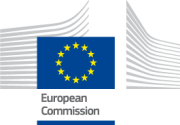
How can you measure regional innovation performance? Try combining quantitative evidence with comparative analysis. This session will focus on live examples from the Horizon Dashboard – an interactive knowledge platform offering data and statistics on research and innovation projects – and the Regional Innovation Scoreboard, which provides a comparative assessment of overall innovation performance across the regions of the EU Member States and a few other neighbouring countries.
- Local and regional | EU/ European | Neighbours (ENI + IPA + EFTA + UK) | International | Industry, entrepreneurship and SMEs (enterprise/ startup/ business) | Research and Innovation
- Code: 11WS23449
Speakers


Roberta Pattono

Athina Karvounaraki
Practical information
- When
-
Wed 11/10/2023, 14:30 - 15:30 CET
- Type of partnership
- NONE
- Format
- Workshop
- Theme
-
Regions in post-industrial transition
- Language
- English
- Social media
-
Horizon Europe
Research & Innovation
Partner

European Commission - DG RTD
Document
Reporting
Session summary
On 11 October, during the European Week of Regions and Cities, this workshop aimed at showing how quantitative evidence, supported by qualitative information can be used to monitor, assess, or compare the R&I performance of European regions.
Roberta Pattono (DG R&I.G6) showed the audience how to access quantitative evidence on EU R&I funding through the Horizon Dashboard, which can support both national and regional policy making.
Athina Karvounaraki (DG R&I.G1) presented the Regional Innovation Scoreboard, which confirms the innovation divide in Europe, but at the same time, it shows variation in the performance of the regions within the same country.
Markus Lötzsch, CEO at the Nuremberg Chamber of Commerce and Industry, referred with concrete examples to the efforts of his organisation, in collaboration with other regional stakeholders, to improve the R&I system of their region with particular emphasis on employment.
The presentations were followed by an interesting debate highlighting the role of quantitative and qualitative evidence in supporting smart specialisation.



